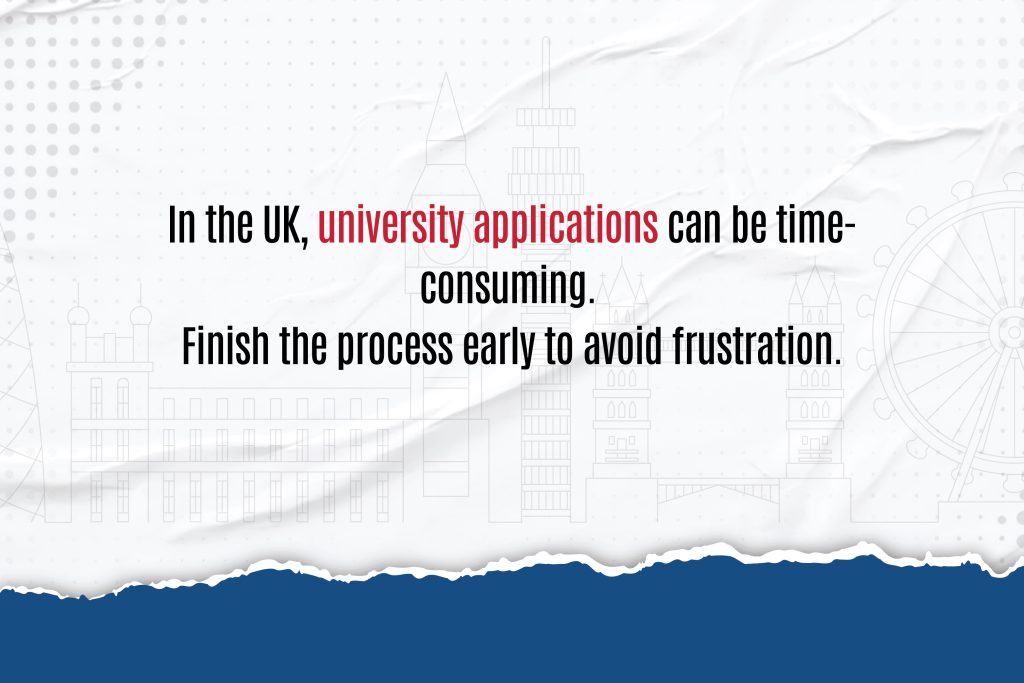Studying abroad in the UK universities offers an incredible opportunity for international students to immerse themselves in a different culture, gain valuable knowledge and skills, and create unforgettable experiences. However, embarking on this journey can be a learning curve, filled with challenges and the potential for mistakes. Whether you are admitted in one of the top universities in the UK or best universities in London or public universities in the UK, it’s important to approach the adventure with an open mind and a willingness to embrace the unknown.
To make the most of your international study experience, it’s crucial to avoid common pitfalls that many international students encounter during studying in UK universities. By being aware of these mistakes and taking proactive steps, you can ensure a smoother transition and maximize the benefits of studying in the UK universities. From shying away from new opportunities to neglecting to broaden your social circle and immerse yourself in local customs, there are several missteps to watch out for.
So, if you’re preparing to study abroad in a UK university, let’s explore five common mistakes that international students often make and discover practical tips to avoid them.
One essential item to pack during attending a UK university as a new international student is your willingness to learn a new language. While fluency is not expected upon arrival, having a grasp of basic language skills can greatly assist you. If you are admitted into a UK university outside of London, like University of West of England or University of Essex or Ulster University, you may experience some change in pronunciation. To enhance your language skills, consider getting a language tutor, taking classes, or befriending native speakers for practice.

Making an effort to speak the local language shows respect and can impress tutors and future employers. It’s also important to familiarize yourself with their customs and regulations before departure. Learning about your UK institution, the local area, maps, and transit systems will contribute to a smoother transition. While fluency isn’t necessary, making an effort to understand and speak the local language, especially through interactions with local students, will greatly enrich your experience.
Insufficient research on finances and grants
It’s crucial to be aware of the potential costs while considering international studies. Whether it is a public university in the UK or private university in the UK or cheapest university in the UK, many students miss out on grants and scholarships simply because they are unaware of their existence. Universities like London South Bank University, University of East Anglia, University or Hertfordshire and many others provide a wide range of scholarships. Look beyond the commonly known grants and scholarships by exploring government websites, scholarship portals, local organizations like the Rotary Club, international student advice websites, your school’s financial aid or international education offices, and student forums.

Seek advice from fellow students and make a dedicated effort to find financial support for living expenses and travel. Study in UK university providers often offer scholarships and discounts, so make use of online resources to learn more. Additionally, create a practical budget plan to manage your daily expenses. Take into account accommodation, utilities, commuting costs, and other living expenses.
Visa issues
Many people are unaware that there are two types of student visas available for studying in UK universities.
Short-term study visa: This option is suitable for students who plan to engage in a short language course or research project as part of their degree. It is valid for 6 or 11 months.
Student route visa: Formerly known as the Tier 4 General student visa, this is required for students pursuing an undergraduate or higher-level degree at a university.
The timing of the application process depends on whether you are inside or outside the UK. If you are outside the UK, you can apply up to six months before your course starts and expect a decision within three weeks. If you are already in the UK, you can apply up to three months before your course begins, and the decision will be made within eight weeks. It’s important to note that if you apply from within the UK, you must submit your application before your current visa expires.
Preparation for class tutorials
University experiences and teaching methods vary across countries and institutions, so it’s important not to assume a universal approach. Different universities may have diverse structures and expectations for students’ learning. Whether it is one of the best universities in the UK or public universities in the UK or colleges in London, the level of independent learning versus direct interaction with instructors differ. Attendance policies, participation requirements, and teaching styles can vary as well.

To adapt successfully as an international student in the UK universities, attend classes regularly and observe the dynamics between professors and students. Complete assignments promptly and seek feedback from instructors. Communicate with your lecturers to understand their expectations and attendance policies. Review course materials such as syllabi and seek advice from fellow students. Additionally, familiarize yourself with the grading system specific to your degree.
Work arrangement
While studying in the UK universities, if you intend to work part-time, it is highly likely that you will require a work visa.
Whether you are studying in one of the top universities in the UK or best universities in London or public universities in the UK, there are several crucial details to consider in this process. Depending on your circumstances, you may be limited to working on campus with your educational institution as your place of employment. Alternatively, you might need to apply for a post-study work visa before arriving in the UK. In some cases, if certain criteria are not met, you may not be eligible to work at all.
Studying in the UK universities as an international student offers tremendous opportunities for personal growth and academic development. Whether it is a top university in the UK or public university in the UK or cheapest university in the UK, by following this guideline and being proactive in your approach, you can navigate common mistakes and make the most of your time in the UK. Remember to stay open-minded, embrace challenges, and seek help when needed.